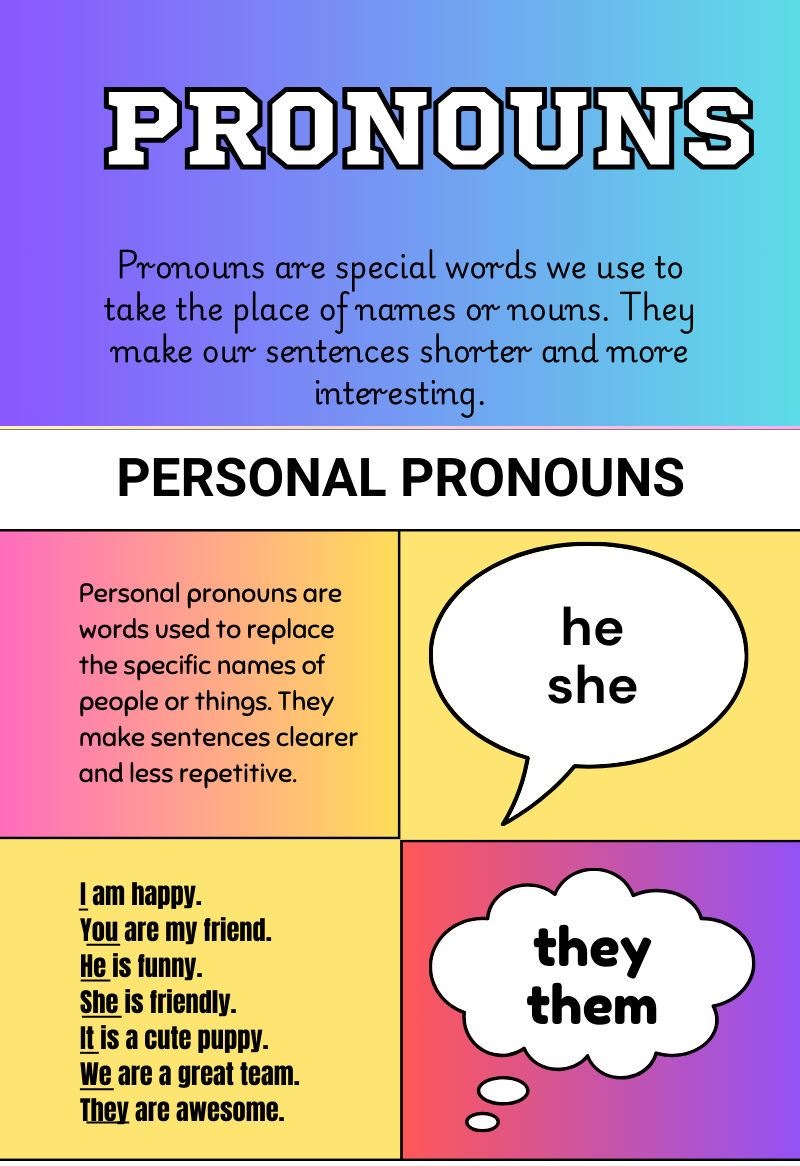




Step-by-Step Practice: Identify and Use Personal Pronouns Correctly
FAQs on Master Personal Pronoun Exercises for Clear English Communication
1. What are personal pronouns?
Personal pronouns are words used to represent specific people or things in a sentence. Examples include "I," "you," "he," "she," "we," and "they."
2. How do personal pronouns differ from other types of pronouns?
Personal pronouns specifically refer to individuals or groups. Other pronouns include demonstrative pronouns (this, that), relative pronouns (who, which), and possessive pronouns (mine, yours).
3. What are the different forms of personal pronouns?
Personal pronouns come in three forms: subject (I, you, he), object (me, you, him), and possessive (my, your, his).
4. How do I choose the correct personal pronoun for a sentence?
Select the pronoun based on its role in the sentence (subject, object) and match it with the antecedent’s number (singular/plural) and gender.
5. What is the difference between "I" and "me"?
"I" is used as a subject pronoun (e.g., "I am studying"), while "me" is used as an object pronoun (e.g., "She called me").
6. When should I use "he" versus "him"?
Use "he" as a subject pronoun (e.g., "He is here") and "him" as an object pronoun (e.g., "I saw him").
7. How do possessive pronouns work?
Possessive pronouns show ownership and do not require an apostrophe. Examples include "my," "your," "his," "her," "its," "our," "their."
8. What are some common mistakes with personal pronouns?
Common mistakes include using the wrong pronoun form (e.g., "She gave it to I" instead of "She gave it to me") and mismatching pronouns with their antecedents.
9. What are personal pronoun exercises?
Personal pronoun exercises are activities designed to help practise and reinforce the correct use of personal pronouns in various contexts.
10. Why is understanding personal pronouns important?
Understanding personal pronouns is essential for clear and accurate communication, as they help specify who or what is being talked about in sentences.
11. Can personal pronouns be used in formal writing?
Yes, personal pronouns can be used in formal writing, but it’s important to use them appropriately and ensure they fit the context of the document.























